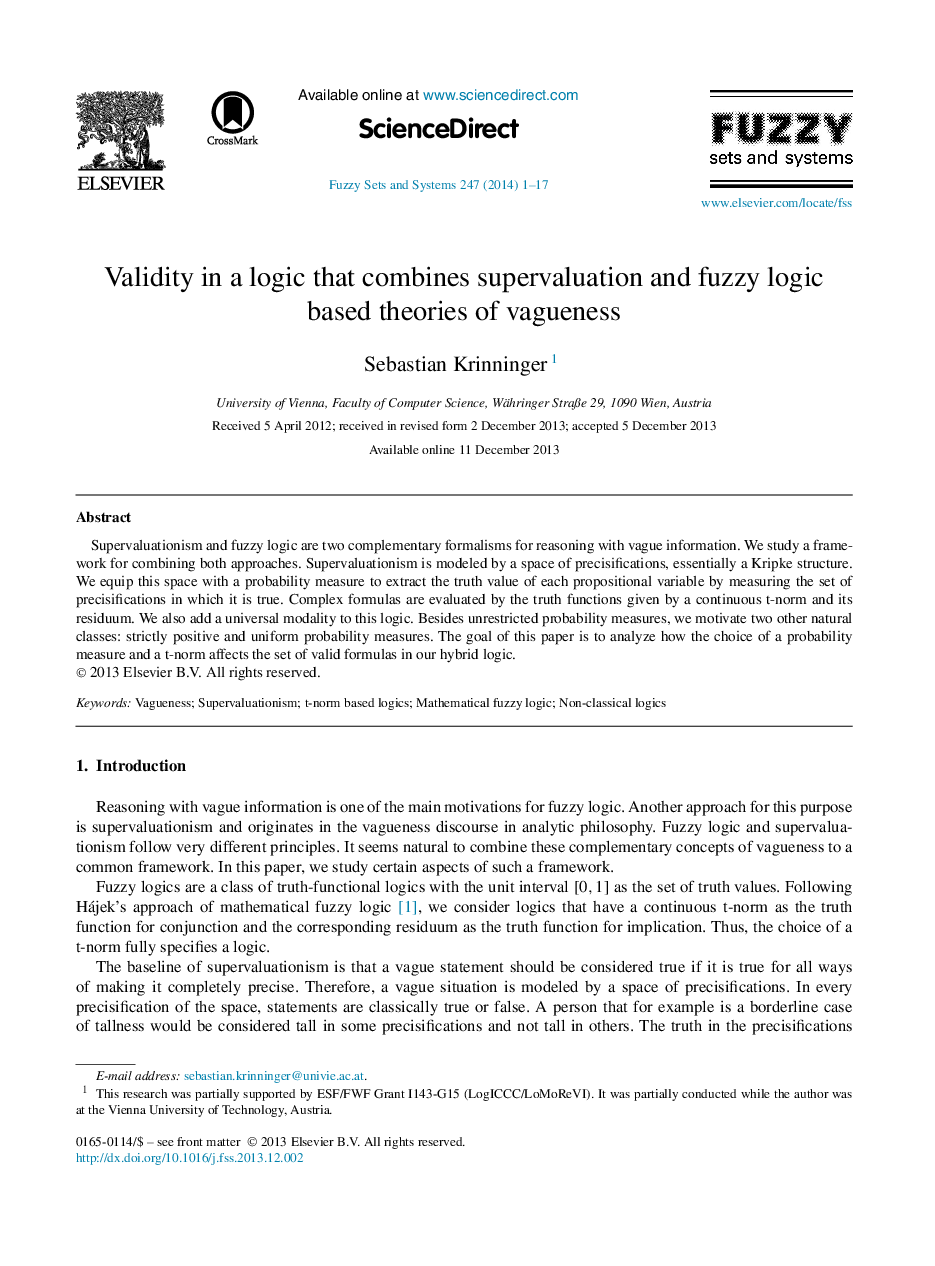| Article ID | Journal | Published Year | Pages | File Type |
|---|---|---|---|---|
| 389291 | Fuzzy Sets and Systems | 2014 | 17 Pages |
Supervaluationism and fuzzy logic are two complementary formalisms for reasoning with vague information. We study a framework for combining both approaches. Supervaluationism is modeled by a space of precisifications, essentially a Kripke structure. We equip this space with a probability measure to extract the truth value of each propositional variable by measuring the set of precisifications in which it is true. Complex formulas are evaluated by the truth functions given by a continuous t-norm and its residuum. We also add a universal modality to this logic. Besides unrestricted probability measures, we motivate two other natural classes: strictly positive and uniform probability measures. The goal of this paper is to analyze how the choice of a probability measure and a t-norm affects the set of valid formulas in our hybrid logic.
